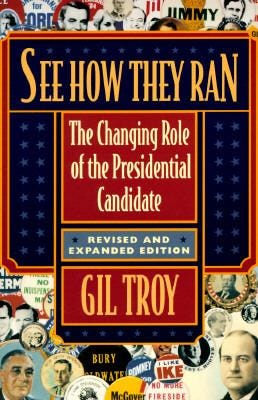Social divide and the epithet pinning game
Labels abound to identify political factions and social groups but most are at best naive or simplistic characterizations of reality

When Canadian truckers coalesced into a nationwide protest back in January and February 2022 against a never ending stream of sanitary measures imposed by the federal government, most notably on vaccination mandates to cross the border, the initial reaction from media talking heads was predictable. Broad generalizations of the actors involved in the Freedom Convoy were immediately made. They were depicted as an uneducated and misinformed crowd mainly motivated by anger.
The protesters and their supporters were then rapidly labelled with a series of epithets such as populist, fascist, racist, extreme-right, libertarians,…, to name a few. Discernment towards their recriminations was not even an option for most journalists and analysts. Only small alternative media platform seemed interested in talking directly to the protesters, to perform actual reporting.
In hindsight, with the series of unprecedented mandates enforced on baffled citizens for two years, not to mention all the collateral damages it triggered, a minimum of empathy towards them would have been the moral response in normal times. Or at least some curiosity to understand theirs positions, motivations, complaints, etc.
Alas, it was not meant to be.
Moreover, it must be stressed that when multiple and ill-defined labels are casually utilized by some reporters, we are not dealing with a refined analysis of an obviously exceptional population backlash but rather with a low resolution and lazy interpretation of a highly complicated issue. Some labels are even anchored in an historically anachronistic fashion, such as comparing contemporary middle income families joining the now infamous convoy with real fascists from another era in Nazi Germany. Thus discrediting the validity of the explanations subsequently put forward.
Words, concepts, political philosophies, ideologies have specific meaning and should be used with care.
For starters, fascism clearly implies centralized authority, subordination of individual agency for the greater good of the nation, suppression of the opposition and a collaboration of government entities with the private sector. In retrospect, who between the Trudeau government and the protesters of the Freedom Convoy exemplified this definition ?
At this point, must I really need to explain the absurdity of the claims peddled by the media and even the Prime Minister himself ?
Of course, the optics of this movement surely materialized itself in a messy way in real life (large scale manifestations, road blockage, honking, social media outbursts, sketchy memes, etc.) and was perceived as an embarrassing retaliation to governmental interventions. To most citizens, the mandates were grounded in good faith, but to disregard outright the fundamental reasons behind this response from a substantial portion of the population, with contempt and moral high ground, blinds the casual observer of the big picture.
That a regime in power, in the hopes of reorienting the heat elsewhere, tries to denigrate a faction amongst the citizenry is one thing. But that the journalistic machine spins this message unanimously in favor of the government, speaks volume to the breakdown of journalism as an essential democratic institution in our society. In this context, can we really be surprised that citizens will rebel ? When traditional institutions have lost their credibility, where does the citizen turn to ?
The new social divide
So are we misrepresenting this contemporary political force for something it isn't ?
Because the trucker protest ended without any negotiated settlement to domestic policies, the new divide witnessed during the winter of 2022 is bound to reappear at some point in the near future.
The usual left-right political spectrum now seems more and more an antiquated concept (at least insufficient), as new political forces emerge without necessarily being aligned with our common frameworks. Old cultural, political ennemies can even become new partners and allies.
In a viral Substack post back in February 2022, N.S. Lyons beautifully and eloquently synthesized the emerging social divide we are living through. By framing it in a brand new light, it helps us understand the emerging socio-cultural wedge and his argument is very interesting. The basic premise is that within our increasingly hi-tech economy, the population is segregating between what Lyons calls: Virtuals and Physicals.
Virtuals could be resumed as the laptop class, the managerial and professional elite and anyone that earns a living manipulating data, knowledge or abstract concepts away from any actual physical assets.
Physicals would correspond in this framework to citizens making a living in classical sectors of the economy: manufacturing, agriculture, logistics, and the like. Any activity linked to actual goods manufactured, repaired, transported, produced, etc.
With that in mind, I want to be careful to not end up into the same pitfall I explained earlier by over simplifying what is going on but rather stress the fact that multiple frameworks and analysis grid need to be juxtaposed to brush are more complete and nuanced picture of reality, especially new and updated ones.
I strongly suggest my readers to add this piece - see link below - to their reading list but in the meantime, here’s a quote from Reality Honks Back:
“ But the most relevant distinction between Virtuals and Physicals is that the Virtuals are now everywhere unambiguously the ruling class. In a world in which knowledge is the primary component of value-added production (or so we are told), and economic activity is increasingly defined by the digital and the abstract, they have been the overwhelming winners, accumulating financial, political, and cultural status and influence.”
Using Lyons’s interpretation of the Freedom Convoy, the truckers clearly represented the Physicals in this contemporary “battle”.
The media actors categorizing this movement as populist, and doing it voluntarily in a derogatory fashion, are not innocent bystanders, they represent and defend exactly the political power that increasingly centralizes itself around a technocratic elite akin to the Virtuals coined by N.S. Lyons.
The left-right paradigm to interpret the current political landscape clearly shows its limits. In many Western liberal democracies, we are witnessing a restructuring of political forces into new movements. Old “ennemies” that were historically in opposite camps (left vs right leaning governmental policies) are now joining forces to either be in Group A; to promote even more state-sponsored interventions and a collectivist approach to tackle societal issues. Or join Group B; a movement loosely called a reemerging populism that essentially defends the reintroduction of constitutionally guaranteed individual rights.
Not a day goes by without a mainstream media article proclaiming that our democracies are under threat from these grass-roots movements of citizens fighting for their constitutional rights. It is not a new phenomenon per se but the governmental overreach in the wake of the covid pandemic accelerated the process and exemplified the willingness of many state bureaucrats to impose arbitrary rules and measures to curtail the spread of the virus.
As for populism per se, it appears to be simply a sub-component of higher level political philosophies or ideological manifestations. As seen throughout history, a populist candidacy can emerge from the left or the right of the political spectrum. Thus, the populist etiquette, from where I stand, describes more the delivery and the style of the political actor than its overarching values or political philosophy.
In short, political observers seem to be completely missing the mark by making targeted accusation of populism when all contemporary politicians are selling dreams, making numerous and spectacular promises that can only be partially fulfilled.
As for the level of discourse, the gratuitous attacks by political adversaries and low level written warfare on social media, we need to remind ourselves that the so-called golden age of politics never existed. Below, a quote describing presidential candidates rhetoric from Gil Troy’s See How They Ran book on American presidential elections:
“ Throughout the spring, the two friends battled in the Republican primaries. Bitter, they fought like schoolboys. “Puzzlewit”, “fathead”, “egotist”, “demagogue”, they called each other. Taft felt “humiliated” that he was “the first one that has had to depart from the tradition that keeps the President at home during political controversies.”
But Roosevelt had given him no choice. “I represent a safe and saner view of our government and its Constitution than does Theodore Roosevelt.” Taft said.
Arbiters of taste in the nation were appalled. This “spectacle…should bring a brush of shame to the cheek of every America.””
Gil Troy, historian, 1996
Clearly, we have seen this type of discourse before in the electoral process and the political sphere in general.
As for the social divide issue, this polarizing phenomenon is not only perceptible in election results or the growing number of political parties in some countries but also in internal migrations within the US and Canada. Some analysts have even noticed that like-minded people tend to aggregate in the same communities and counties in the US. The phenomenon will continue to evolve in the next decade and it will be interesting to see how it unfolds.
To close this month’s piece on a positive note, I leave you with a suggested reading from Common Sense.
In a passionate speech in front of new students of UATX in July 2022, Bari Weiss (Ex-New York Times journalist) delivered a true call for action to overcome the dysfunctional socio-political landscape we are currently living in. In an age where the culture war in the West seemingly has run its course and where political polarization cannot genuinely go any further, Weiss’s pitch to the Millennial crowd seemed timely. As if years of cultural and political havoc prepared common grounds for a renewed social compact.
It was at least a first step in that direction. Let’s just hope that others will lift up their share of the load and be drivers in founding our new institutions.
Here’s an excerpt from the speech that can be read in its entirety in the link below:
“ Being a founder means resisting nihilism.
That means both the nihilism of the left that says abolish the police because safety is impossible. And it means resisting the new nihilism of the right that says decline is inevitable, we’re in the last gasps of empire. The nihilism that roots for Putin because “in Russia they don’t ask your pronouns.” The nihilism of saying: The Bronze Age was better because men were really men then. But also the historical revisionism of wishing we were still peasants in the Middle Ages because capitalism is so awful. The nihilism that wants to go back fifty years or five hundred years based on some fetishized vision of a better time. The nihilism of losing perspective.
To quote the brilliant Grimes, being a founder doesn’t mean killing what you hate, it means saving what you love.”
Bari Weiss, journalist
In conclusion, it is not that our current political institutions have necessarily failed us, they might just have ran their course completely.
These institutions were fitted and well suited for their era, producing incredible results over the decades; but we clearly need new ones for the upcoming century.









Great article Patrick. There are many movements that continue to take place and new ones growing, beyond the truckers convoy and their supporters.
We're already seeing the second wave of the trucker issue with Northwestern's Booster mandate. Karlstack has covered it extensively. Great read, keep up the good work!